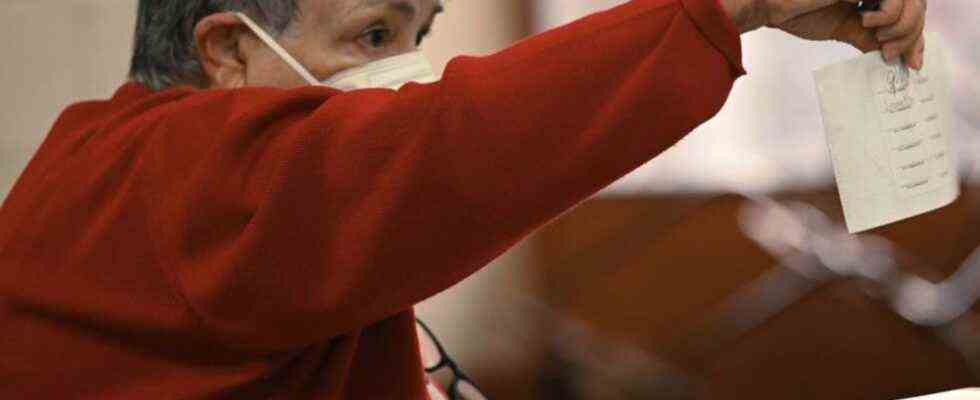Choose
Ex-president ahead in election in Costa Rica – runoff possible
A woman puts her ballot into a ballot box during Costa Rica’s general election. Photo: Carlos Gonzalez/AP/dpa
© dpa-infocom GmbH
25 candidates stood for election to succeed Carlos Alvarado in Costa Rica. The voters did not make a clear decision, there will probably be a runoff. An ex-president should be there.
After the presidential election in Costa Rica, a run-off election is looming in April.
After more than 75 percent of the polling stations were counted, according to the electoral authority late Sunday evening (local time), former President José María Figueres led well ahead of runner-up, ex-Finance Minister Rodrigo Chaves from the center party PSD.
Figueres, the candidate of the social democratic PLN, got about 27.3 percent of the votes, Chaves about 16.6 percent.
To avoid an April 3 runoff, a candidate would have had to get at least 40 percent of the vote. In third place with around 15.1 percent was the evangelical preacher Fabricio Alvarado from the right-wing party Nueva República.
Direct re-election of the President is not possible
The constitution of the Central American country prohibits direct re-election of the president, so the social democrat Carlos Alvarado was unable to run for a second four-year term as head of state and government. With former Economics Minister Welmer Ramos as a candidate, Alvarado’s PAC party, which has governed for almost eight years, lagged behind at less than 1 percent.
All 57 members of the parliament, which consists of a single chamber, were also elected on Sunday. There, too, the PLN was ahead – according to projections, it would get almost 20 seats, the PAC would get none.
25 parties and alliances each had a candidate in the race for the presidency. During the election campaign, neither a dominant theme nor a clear favorite emerged. In a survey conducted by the Universidad de Costa Rica a few days before the elections, around 32 percent of those questioned said they were undecided. Costa Rica has around five million inhabitants and is known for biodiversity and nature conservation as well as a vacation destination.
The 67-year-old industrial engineer Figueres was President of Costa Rica from 1994 to 1998. His father, José Figueres, was president three times and founded Costa Rica’s Second Republic after the civil war in 1948, as well as the PLN party.

